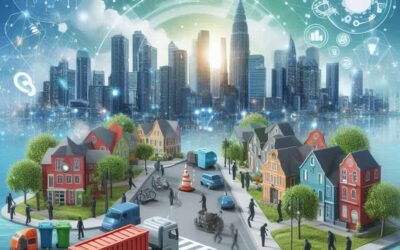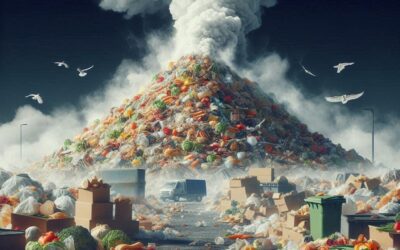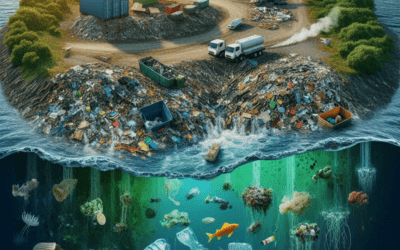In today’s fast-paced world, convenience has become a way of life. From single-use plastics to fast fashion, our society has embraced a culture that prioritises instant gratification and short-term convenience over long-term sustainability. And while convenience may make our lives easier, it is also silently wreaking havoc on our planet. This blog post explores how convenience is contributing to the destruction of our environment and why we need to rethink our choices. We are all at fault.
1. Single-Use Plastics:
One of the most visible and damaging consequences of convenience is the prevalence of single-use plastics. From plastic bags and straws to water bottles, cups and food packaging, these items are designed for one-time use and are often discarded after a few minutes or hours of convenience. Unfortunately, these plastics take hundreds of years to decompose, and a significant amount of them end up in our oceans, harming marine life and polluting our ecosystems. We must begin to look at non-toxic alternatives to plastic in as many areas as possible, and where plastic must remain the material used – a conscious shift towards reusable plastic must be the route forward. You can read about a great example of this regarding the recent pilot from Mars here.
Two INconvenient things I can do immediately: Carry your coffee cup in your bag, use it, wash it, and reject single-use cups. Purchase reusable hand soap containers, and refill them at your nearest Zero-Waste Store.
2. Fast Fashion and Disposable Culture:
Another way convenience is impacting the environment is through the rise of fast fashion and our disposable culture. The demand for cheap and trendy clothing has led to an industry that prioritises speed and low costs over sustainability. Fast fashion encourages the production of large quantities of clothing, which often leads to overconsumption, excessive waste, and exploitative labour practices. The convenience of buying cheap clothes that we can discard after a few wears is contributing to significant environmental degradation and the depletion of natural resources. Certain parts of the world are beginning to see an upturn in the demand for thrift stores and second-hand clothing, which is encouraging, but not enough in itself. We, as a society, must steer away from fast fashion and the disposable culture we have built.
Two INconvenient things I can do immediately: Buy better quality clothing, from sustainable suppliers, and use it for longer. When you need to dispose of clothing, wash it, and take it to your nearest second-hand clothing store.
3. Food Waste:
Convenience-driven lifestyles have also contributed to a staggering amount of food waste. Pre-packaged meals, fast food, and excessive portion sizes often lead to more food being produced and consumed than necessary. According to the Food and Agriculture Organization (FAO), roughly one-third of all food produced for human consumption is wasted. Food waste not only squanders valuable resources like water and energy used in production but also releases greenhouse gases when it decomposes in landfills, exacerbating climate change. It’s a staggering statistic, but approximately 8-10% of the world’s greenhouse gas emissions relate to food waste. To combat this, we must find ways to minimise excess food production and also invest in solutions to divert would be food waste, into secondary energy sources via methods such as anaerobic digestion.
Two INconvenient things I can do immediately: Make your lunch and put it in a reusable lunch box. Join the toogoodtogo movement, download the App and rescue unsold food from an untimely fate at your favourite spots.
4. Packaging and Excessive Consumption:
Convenience often comes at the cost of excessive packaging. Individually wrapped snacks, single-serving coffee pods, and pre-cut fruits and vegetables are just a few examples of convenience-driven packaging choices that generate mountains of waste. Additionally, the constant need for new gadgets, electronics, and other consumer goods drives unsustainable levels of production and resource extraction, depleting the earth’s finite resources. Upcycling of electronics and gadgets is vital to extending the lifecycle of these convenience-driven items and deeper thought into the production of consumer goods to ensure recycled materials are used ahead of virgin resources and in ways that allow for easier refurbishing and remanufacturing of products is imperative for progress.
Two INconvenient things I can do immediately: Buy in bulk, avoid individually wrapped items, and choose products with minimal/recyclable packaging.
5. Electronic Waste and Planned Obsolescence:
The convenience-driven culture encourages constant upgrades and replacements of white goods. As newer models with additional features become available, consumers are enticed to discard their functioning appliances prematurely. The resulting electronic waste, also known as e-waste, poses a massive environmental challenge. E-waste contains hazardous materials like lead, mercury, and brominated flame retardants, which can contaminate soil and water when improperly disposed of or recycled. The issue of e-waste is compounded by the fact that manufacturers employ planned obsolescence strategies, intentionally designing products with limited lifespans to ensure repeat purchases. This results in a disposable culture, where appliances are discarded when they could otherwise be repaired or refurbished. The manufacturing and disposal of short-lived products contribute to resource depletion and waste generation, exacerbating environmental degradation. Responsible e-waste management, including recycling and proper disposal, is crucial to mitigate this impact. Convenience often comes at the expense of product longevity.
Two INconvenient things I can do immediately: Next time your electronic equipment breaks, find someone to fix it. Rent/Lease your electronic equipment, so it becomes the producer’s responsibility to repair, recycle or remanufacture.
Conclusion:
While convenience undoubtedly offers us immediate benefits, we must recognise the long-term consequences of our choices. The convenience-driven culture we have created is destroying our planet, contributing to climate change, polluting our oceans, and depleting our resources. As individuals, we have the power to make a difference by re-evaluating our consumption patterns, opting for reusable alternatives, supporting sustainable businesses, and advocating for change. By prioritising the health of our planet over momentary convenience, we can work towards a more sustainable and resilient future for generations to come.
Why not try something less convenient today?
For further reading on this topic, we cover the dangers of ignoring the issue of waste in our recent report here, and in the presentation below:





